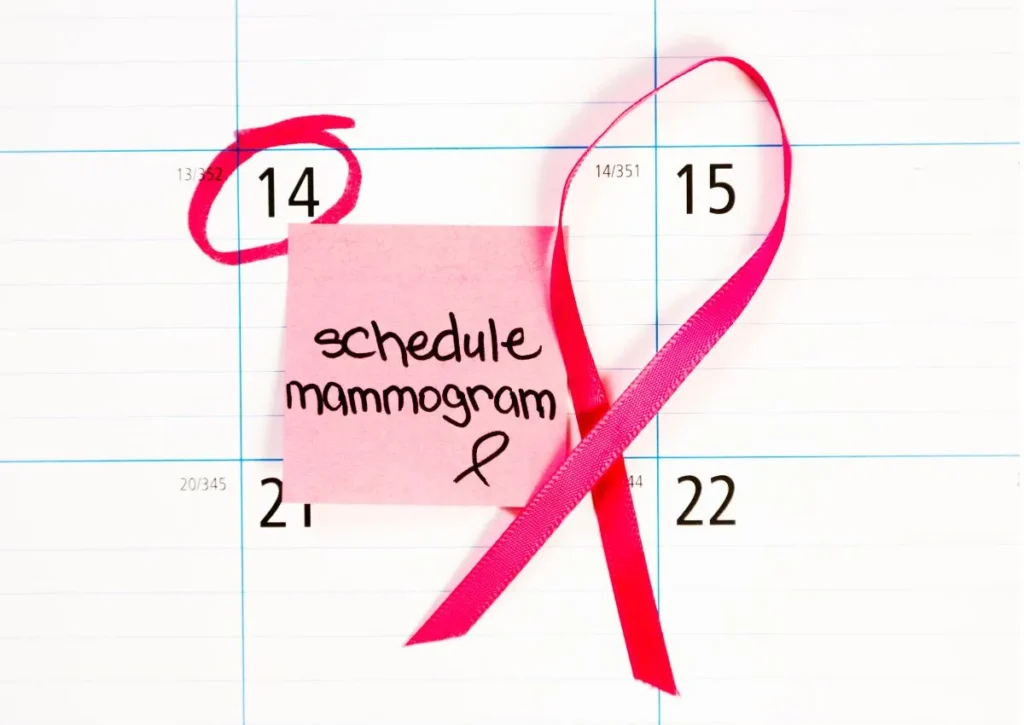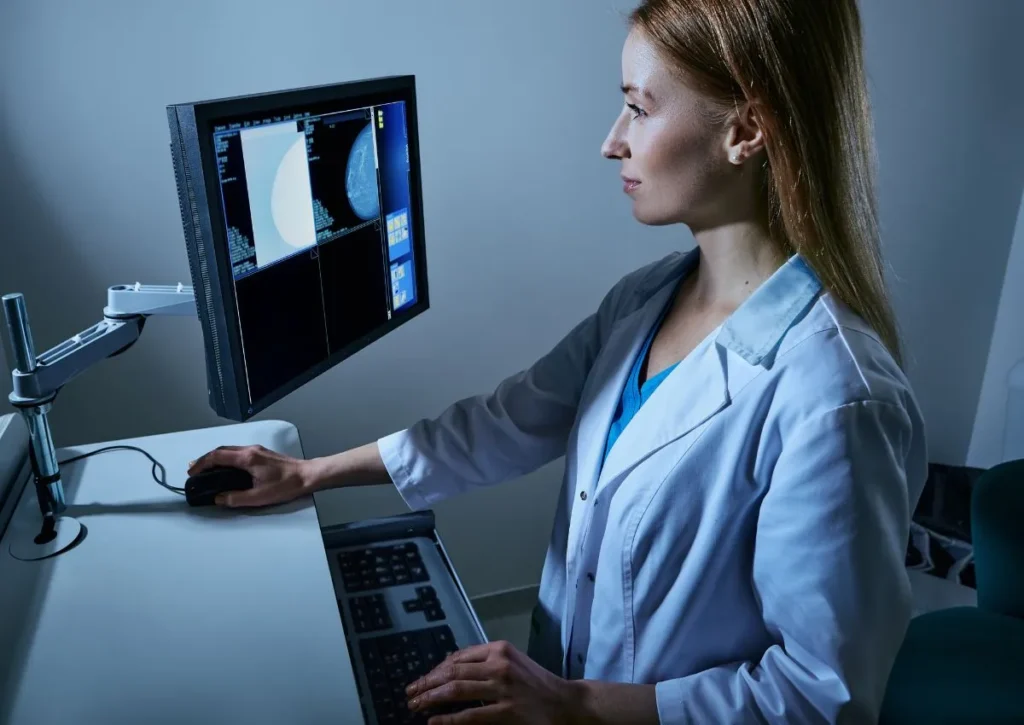Your First Mammogram: What to Know – A Simple Guide
By · Dec 23, 2024
A mammogram serves as a crucial screening tool in breast cancer detection and prevention.
Research shows that early detection through regular mammography screening significantly improves patient outcomes and saves lives. This comprehensive guide will help patients understand what to expect during their first mammogram appointment.
Recent studies reveal important statistics about first-time mammograms. Among 86,781 women receiving their initial screening mammogram, the majority (84.5%) were aged 35-39 years. The data shows a dramatic increase in first mammograms at age 35, jumping from approximately 4,000 screenings at age 34 to 17,000 at age 35. These numbers highlight the growing awareness of breast cancer prevention among younger patients.
Cancer detection rates vary by age group, with detection rates increasing as patients get older. For women aged 18-39 years, physicians find approximately 1.7 cancers per 1,000 mammograms. This rate increases to 2.3 cancers per 1,000 mammograms for those aged 40-44 years, and 4.3 for those aged 45-49 years.

The mammogram process begins well before the actual screening. Patients should schedule their appointment at a certified breast imaging center where trained radiologists and mammography technologists provide expert care. The best time for scheduling is one week after a menstrual period when breast tissue is least sensitive.


These preparation steps help ensure clear X-ray images and a smooth appointment process. Many imaging centers provide special gowns for patient comfort during the exam, but knowing what to wear and bring can help reduce anxiety and make the experience more comfortable.
The day before the appointment, patients might want to reduce caffeine intake, as this can make breast tissue more sensitive. Some women also find it helpful to schedule their appointment for early morning hours when imaging centers are typically less busy and they feel more relaxed.
During the mammogram, a specially trained mammography technologist guides the patient through each step. The process involves taking several images of each breast using compression. While some patients express concerns about discomfort, the compression is necessary for proper imaging and typically lasts only a few seconds for each image.
The actual screening typically takes about 20-30 minutes. During this time, the technologist will position the breast tissue carefully to ensure the clearest possible images for the radiologist to examine. Modern mammography equipment uses low-dose radiation, making the procedure very safe while providing high-quality breast imaging.

After the screening mammogram, radiologists carefully analyze the images for any abnormalities, including lumps, cysts, or other concerning findings. The sensitivity of first screening mammography varies by age, ranging from 76.5% for women aged 18-39 years to 87.3% for those aged 45-49 years.
Patients typically receive their results within a few days to two weeks. Sometimes, additional testing such as a breast ultrasound may be recommended for further evaluation. This is relatively common for first-time screenings, with recall rates around 13% for women aged 18-39 years. These follow-up appointments help ensure thorough breast cancer screening and detection.
It’s natural for patients to experience some anxiety about their first mammogram. Education and awareness can help reduce these concerns. Many imaging centers offer guidance and support to help patients understand the mammography process and its benefits. Some facilities even share patient stories to help newcomers feel more comfortable with the procedure.
The American Cancer Society recommends women with average risk begin annual screening mammograms at age 40. However, those with higher risk factors may need to start earlier, based on their physician’s recommendations.
Modern breast imaging centers utilize state-of-the-art technology for optimal screening results. Digital mammography provides clearer images and allows radiologists to manipulate the images for better visualization of breast tissue. Many facilities also offer 3D mammography, which can provide even more detailed imaging for better detection of abnormalities.

Through proper education and advanced technology, AmberMed continues its mission of detecting breast cancer at its earliest, most treatable stages. Their team of specialists understands that patients often have questions about changes in breast tissue and concerns about pain or pressure during the screening process. That’s why they take the time to explain every step of the way, from putting on the gown to positioning at the X-ray machine.
AmberMed’s services go beyond just mammograms. Their comprehensive breast health program includes ultrasound testing when needed, with easy access to test reports and billing information in English. They share patient success stories, giving people confidence that they’re making the right choice for their health.
Family history plays a significant role in breast cancer risk, which is why AmberMed’s trained specialists take the time to gather detailed information about each patient’s background. They understand that even small changes can mean something important, and they’re committed to addressing anything that causes concern.
Taking the first steps toward breast health is as simple as reaching out to AmberMed. Don’t let questions or concerns about mammograms stand in the way of your health. We offer screening and diagnostic 3D mammograms bimonthly through mobile service. Orders for testing need to be sent to our radiology department (fax 785-675-3884) and they will call patients to schedule. Contact AmberMed today at 785-675-3018 if you have questions or to learn more about scheduling your appointment – because your breast health journey matters, and you don’t have to take those first steps alone.